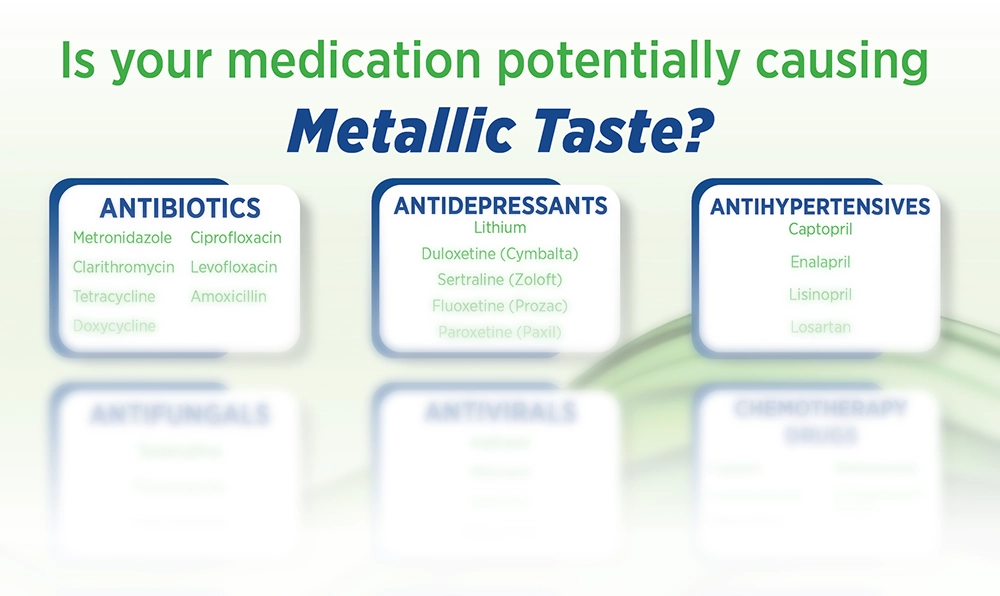

Waking up with a queasy, uneasy feeling in your stomach is unpleasant enough. But when it’s paired with a bitter, acidic metallic taste lingering in your mouth, it becomes downright miserable.
If you find yourself frequently experiencing simultaneous nausea and metal mouth, you’re not alone. Let’s look at some potential causes and effective remedies to help tame the nausea while restoring normal taste.
That coinciding queasy sensation and metal flavor typically stem from one of these common culprits:
GERD causes stomach acid to rise up into your esophagus. This reflux introduces acidic gastric juices into the mouth, which can taste metallic or sour while irritating the stomach. Acid reflux tends to worsen when lying down soon after eating.
Various prescription or over-the-counter medications can alter your sense of taste. Metallic flavors are a relatively common side effect of several drug classes. These include antibiotics, antifungals, antidepressants, anti-inflammatories, antipsychotics, anticonvulsants, and more.
Infections like colds, flu, sinusitis, or COVID-19 can also elicit metallic tastes. Congestion and post-nasal drip end up dripping down the throat, where the mucus alters taste buds and potentially irritates the stomach.
Poor dental hygiene often correlates with a constant bad or metallic taste in the mouth. Cavities, gingivitis, periodontitis, and tongue coating are examples. Bacteria accumulate in your mouth when you don’t brush and floss regularly.
Rarely, people with epilepsy, tumors, or damage in parts of the brain affecting taste perception may simultaneously experience nausea and a metal mouth. If it happens frequently, tell your doctor, since it could point to an underlying neurological condition.
While identifying and treating the root cause is ideal, you can also use these handy tips to help override and mask the unpleasant metal flavor while calming your queasy stomach:
See your doctor if nausea and metal mouth persist for over 2 weeks or interfere with eating and drinking. Unexplained weight loss, vomiting blood or coffee grounds, fevers, headache, or other concerning symptoms also warrant medical evaluation. But in most cases, the metallic flavor and queasiness will fade as the underlying cause resolves.
While having nausea accompanied by a metal mouth is often harmless, at times it may signal something more serious. Seek prompt medical care for nausea and metallic tastes if you have:
Getting the right diagnosis and treatment can help resolve chronic nausea and metal mouth while also addressing any underlying medical issue. Don’t hesitate to get medical care if your symptoms are severe or persistent.
Nausea and metallic taste often happen concurrently due to infections, reflux, medications, neurologic diseases, or poor oral hygiene. While not usually dangerous, chronic symptoms should get evaluated. Metaqil rinses, oral care, dietary tweaks, hydration, and antacids can help manage temporary metal mouth and nausea until the cause resolves.
